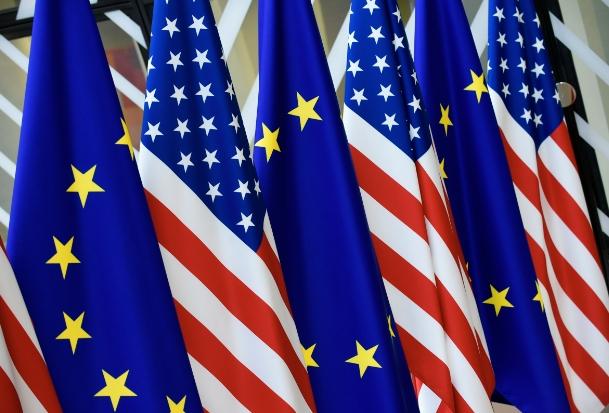The U.S. is on the brink of striking a pivotal deal with the European Union, a move that could see essential European-mined minerals playing a significant role in America’s green energy future. Amid the global race to secure critical minerals crucial for the transition to cleaner energy, the collaboration could mark a milestone in transatlantic relations and the collective march towards a sustainable future.
Bridging the Atlantic with Green Bonds
Negotiations are in full swing, with the U.S. showing keen interest in European lithium and nickel, pivotal ingredients in the green energy matrix. These minerals could soon qualify for green subsidies under the U.S. Inflation Reduction Act, which traditionally favors products birthed in North America.
Jose Fernandez, a key figure at the State Department, expressed optimism about the ongoing discussions during a briefing in Brussels. Illuminating the positive trajectory of the talks, Fernandez affirmed:
“I’m hopeful, optimistic. Negotiations are good. We realize that we need to work together and I am confident that we will have an agreement.”
A Separate Lane for Steel
Interestingly, the prospective mineral agreement is cruising its lane, unentwined with ongoing discussions concerning U.S. import tariffs on EU steel. The distinct nature of these negotiations underscores the primacy and urgency accorded to the critical minerals dialogue.
Earlier in the year, the U.S. inked a similar minerals accord with Japan, an indication of its expansive outreach to secure these precious resources. The EU and Britain are now potentially next in line, signaling a broadening international cooperation in the green energy sphere.
AI Ethics on the Discussion Table
Beyond the mineral talks, Fernandez highlighted ongoing discussions aimed at forging a united front in the realm of artificial intelligence (AI). The joint Trade and Technology Council, slated for later this year, is expected to delve deep into establishing ethical and practical safeguards for AI.
“We agree that AI should support democratic values, human rights, and individual freedoms,” said Fernandez.
The objective, he noted, is to move beyond broad statements and to cement concrete actions and protocols — a sentiment indicating the pressing need to align technological advancement with ethical considerations.
While no specific timeline has been set for reaching an AI consensus, there’s a mutual recognition of the urgency to synchronize regulations and standards. In a world where AI is rapidly becoming a cornerstone of economic and social systems, the U.S. and EU are eager to shape a landscape where technology and values coexist and reinforce each other.
A Symphony of Interests
As the green energy tide rises and AI continues its relentless march, the intertwining of economic, environmental, and ethical threads is inevitable.
In Fernandez’s optimistic tone, one discerns not just the anticipation of agreements but also a glimpse into a future where transatlantic collaborations could be a linchpin in a world pivoting towards sustainability and technological harmony. The dance of diplomacy is intricate, but the shared tunes of green energy and ethical AI signal a concert of interests echoing far beyond the negotiation tables.



